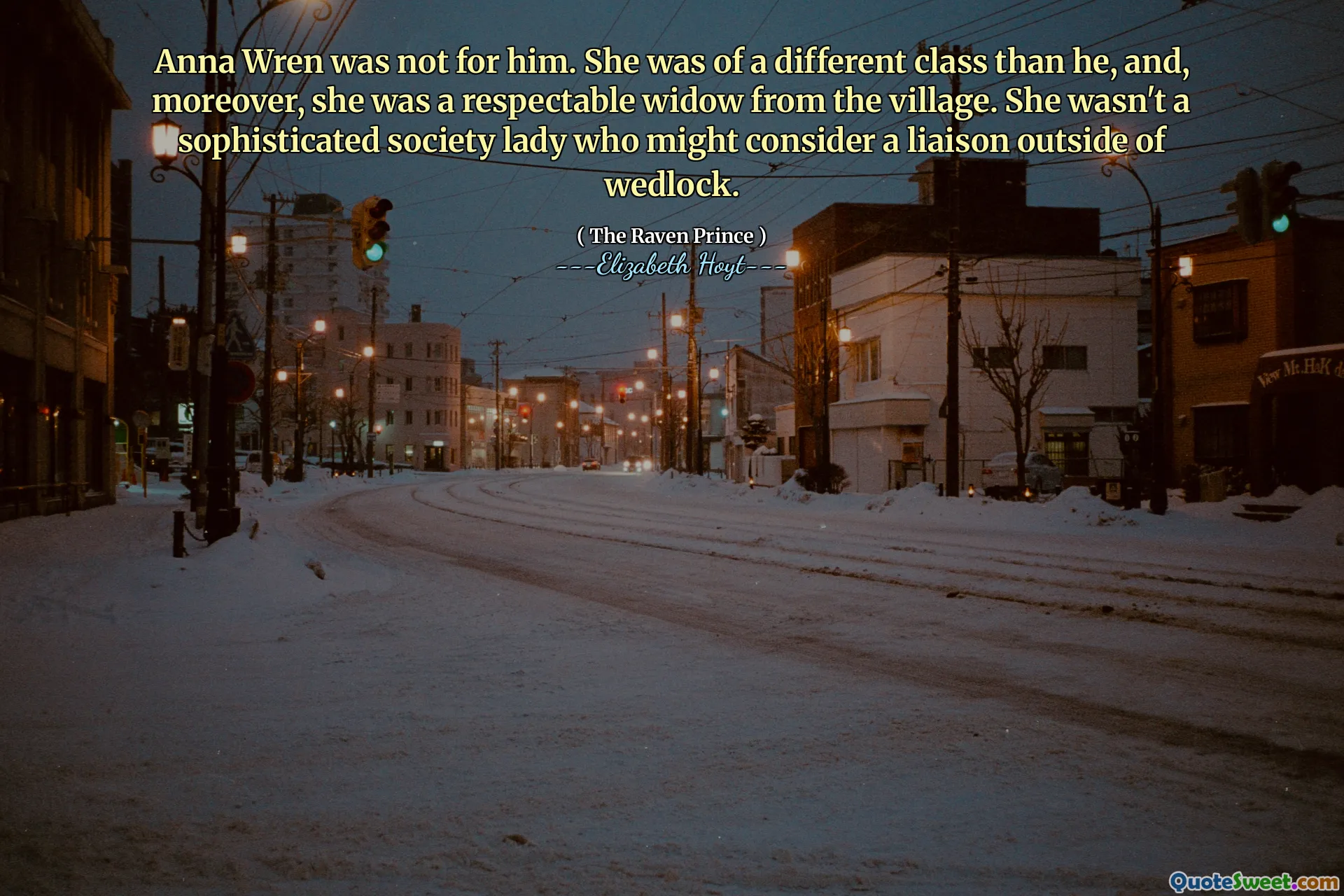
Anna Wren was not for him. She was of a different class than he, and, moreover, she was a respectable widow from the village. She wasn't a sophisticated society lady who might consider a liaison outside of wedlock.
This excerpt highlights the social stratification and moral expectations prevalent in certain society settings. The notion that class and respectability define the suitability of romantic interests reflects the rigid social codes that often control relationships. The emphasis on Anna Wren's status as a 'respectable widow' from the village indicates societal biases favoring modest roots and moral uprightness over social climbing or scandal. Such attitudes serve as barriers to unconventional relationships, often reinforcing social hierarchies and expectations of propriety. The reference to her being 'not for him' suggests a recognition of incompatible social standings, which might lead to societal condemnation or personal regret. These dynamics can lead characters to prioritize reputation and class over genuine connection and love, resulting in inner conflicts and societal drama. The quote encapsulates themes of social division, morality, and the constraints placed on individual choice by societal norms. It also subtly hints at the broader commentary on how society privileges superficial measures like class and morality over personal happiness and authentic relationships.
Understanding these social boundaries provides insight into the characters' motivations and constraints, emphasizing the enduring influence of societal expectations on personal decisions. This context fosters empathy for characters navigating such societal norms and invites reflection on how these themes resonate in different times and cultures, where similar barriers to love and acceptance may still persist, albeit in different forms.






